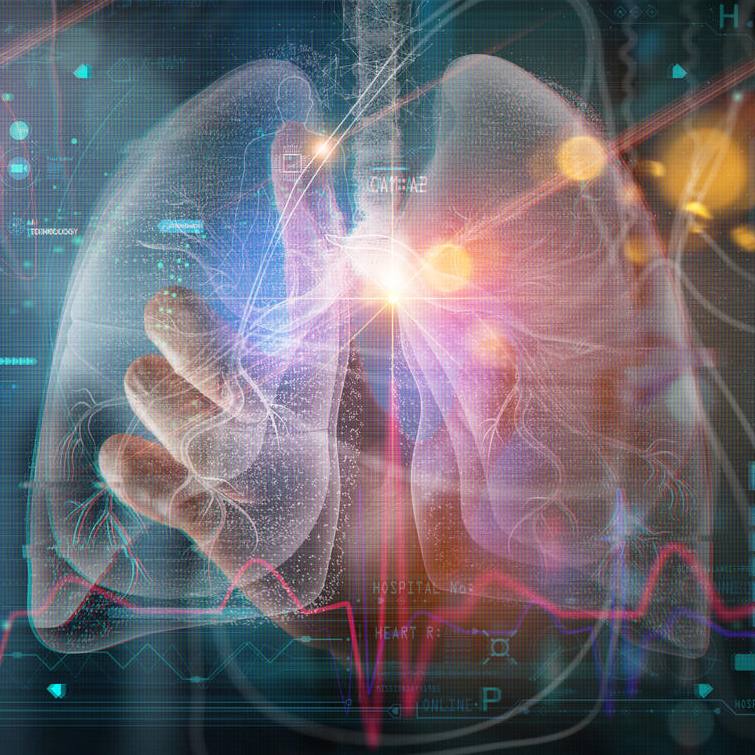-
Day 2: Genomics experts share latest exposomic research at Mayo Clinic’s Individualizing Medicine Conference

The latest advances in exposomics, precision nutrition, metabolomics and cancer genomics were showcased on day two of Mayo Clinic's 11th Annual Individualizing Medicine Conference in Rochester, Minnesota. More than 300 genomics experts and health care leaders gathered to share their latest research and visions for transforming human health through individualized medicine.
Among the featured speakers was Sharon Donovan, Ph.D. R.D., a professor and director for the Personalized Nutrition Initiative at the University of Illinois at Urbana-Champaign. Dr. Donovan's research is centered on pediatric nutrition.
"Human milk is nature's precision nutrition, and the components in human milk are not just nutrition, they don't just nourish," Dr. Donovan told the audience. "They also communicate things like stem cells and micro RNAs, and they protect, and then there's the sweet spot of these components in human milk that are doing all three."
Dr. Donovan says breast milk is critical for babies during their first 1,000 days of life, including for organ development, metabolic health, immune development and neurocognitive growth.
"When we think about breastfeeding and human milk, we need to think about a quite-complex matrix that's providing many different services."
Shining a light on metabolomics
Precision nutrition is part of a new era in individualized medicine, driven by advances in multi-omic approaches — with particular attention on metabolomics, which is the study of substances created when the body breaks down food, drugs or its own tissue.
Several conference presenters put a razor-sharp focus on metabolomics, including David Wishart, Ph.D., co-director of the metabolomics Innovation Center at the University of Alberta.
"The human metabolism is pretty complicated, and it's made complicated by the fact that there are lots of transformations that go on," says Dr. Wishart, who developed and launched the Human Metabolome Database in 2005. He says the publicly available online library contains detailed information on 250,000 small molecule metabolites found in the human body. It also catalogs nearly 130,000 pathways and has detailed information and biomarker data on more than 600 diseases and conditions.
"What we're finding is that many chronic diseases ranging from cardiovascular disease, kidney disease, Alzheimer's disease, Parkinson's disease, autism, Spectrum Disorders, inflammatory bowel syndrome, asthma, are all arising from or initiated through chronic exposure of microbial-derived metabolites," Dr. Wishart says.
In another metabolomics presentation, Ian Lanza, Ph.D., described how metabolomics technologies are aiding in his research on rare diseases. Dr. Lanza directs a research program in endocrinology, nutrition and metabolism, and he's the director of the Metabolomics Core Facility at Mayo Clinic. Dr. Lanza's research is centered on obesity, aging and other metabolic-related disorders.
"Metabolomics provides an important window into cellular metabolism that you really can't get with any other technology," Dr. Lanza says. "Metabolites are signaling molecules, they affect the function of enzymes and kinases. And they do a lot of things that we're just beginning to understand."
Ending cancer health disparities in underrepresented populations
Many of the experts spotlighted the disproportionate burden of diseases among underrepresented populations, including American Indians. Cheryl Willman, M.D., executive director of Mayo Clinic Cancer Programs, shared with the group her quest to help end cancer health disparities, including among the 574 federally recognized sovereign American Indian or Alaska Native communities across the U.S.
"American Indians have the nation's worst cancer survival compared to all other races and ethnic groups," says Dr. Willman. "They particularly have a higher incidence and mortality from breast, colorectal, liver and kidney cancers. And cancer is the leading cause of death among American Indians aged 50 to 64 years."
Dr. Willman says some cancers are known to be linked to environmental exposures, diet, metabolism, obesity, tobacco use alcohol and substance abuse. She says Mayo Clinic and a consortium of organizations and indigenous tribal nations are launching a genetic testing and research program to help improve cancer screening, precision prevention, and therapeutic intervention.
"And one of our project contributions will be the development of an American Indian reference genome, which we think is important not only for our studies, but other studies in the future," Dr. Willman says. "One of the challenges we have for reference genomes is they've largely been developed in non-Hispanic white populations."
Mayo Clinic's 12th Annual Individualizing Medicine Conference will take place on May 5-6, 2023 in Ponte Vedra, Florida, with a focus on Direct-To-Patient Omics-based Clinical Trials to advance care and disease outcomes.
Learn more
Read more stories about advances in individualized medicine.
Register to get weekly updates from the Mayo Clinic Center for Individualized Medicine blog.
Join the conversation
For more information, visit Mayo Clinic Center for Individualized Medicine, or Twitter at @MayoClinicCIM.








